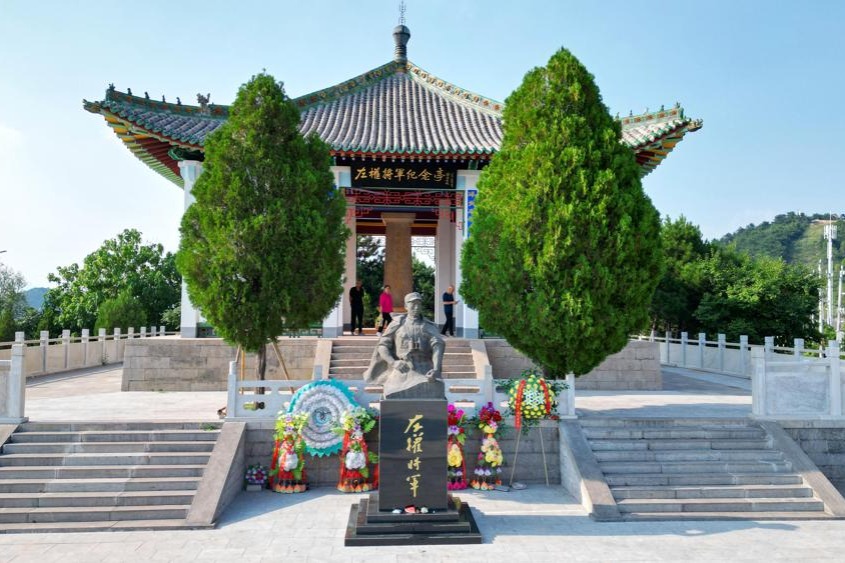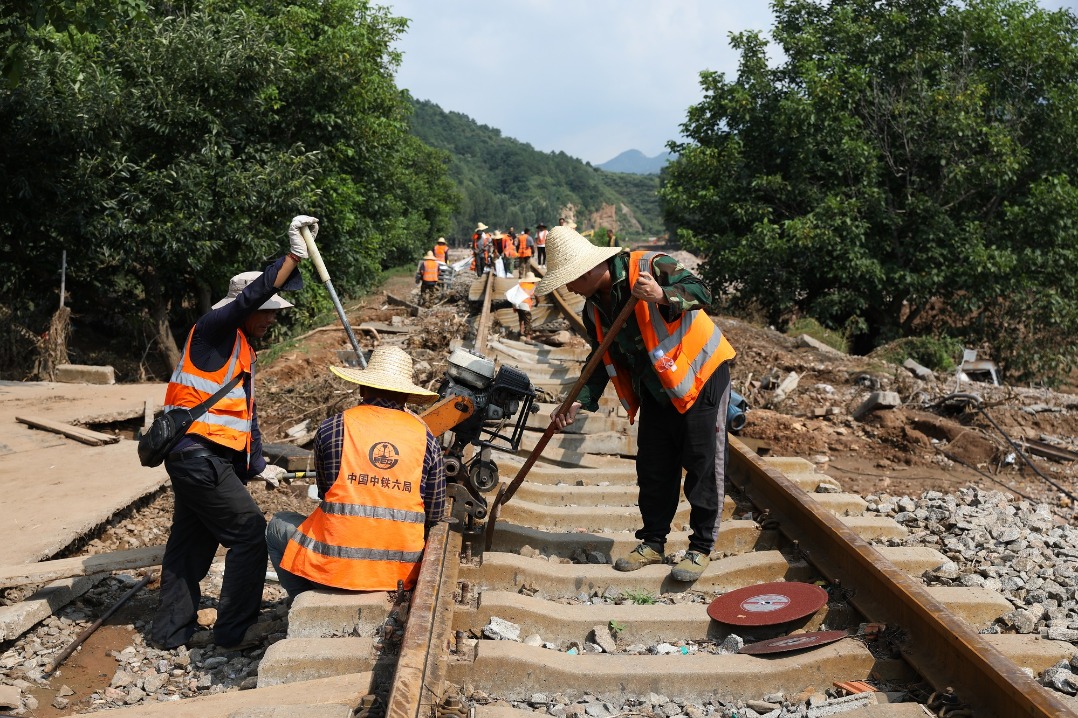Beijing plugs safety gaps amid rain alert





Beijing on Monday issued a red alert for heavy rainfall and launched a top-level emergency response, including evacuating residents from vulnerable areas, to further strengthen its preparedness after a deadly deluge last week exposed gaps in the city's readiness to handle disasters.
In China's four-tier weather warning system, a red alert is the most severe, followed by orange, yellow and blue.
In the city's mountainous Shijingshan district, 92 residents of an elderly care home in the foothills were relocated, as the area has been identified as highly vulnerable to flooding and landslides. All 31 elderly care institutions in the district have been placed on high alert, with their staff required to remain on duty around the clock.
The evacuation, coordinated by an emergency command unit, involved more than 200 personnel from the civil affairs, health, firefighting and community departments, according to a report from the Shijingshan Converged Media Center, an official information platform.
"We are taking the red alert very seriously. ... The transfer of residents from high-risk areas was carried out with urgency," said Lu Manjun, Party secretary and head of Shijingshan's civil affairs bureau.
The precautionary measures for elderly residents have been prompted by an unfortunate incident last week in Beijing's Miyun district. Heavy rains and flooding marooned an elderly care institution in the district's Taishitun township, leading to the deaths of 31 residents who were trapped inside.
Authorities concerned admitted the gaps in their preparedness for extreme weather and vowed to strengthen emergency response for such vulnerable populations.
The Beijing Meteorological Service issued the red alert at 1 pm on Monday, warning of intense citywide rainfall through Tuesday morning. The heaviest downpours were expected between 6 pm and 5 am, with up to 200 millimeters of rainfall forecast within just six hours in some areas.
Authorities also said there is a very high risk of flash floods, landslides and debris flows, particularly in mountainous and low-lying regions.
In response, the city's flood control headquarters activated on Monday afternoon a Level I emergency response, the highest in a four-tier system.
Residents have been advised to take safety precautions and avoid going out unless absolutely necessary, schools have been directed to suspend offline classes, tourist attractions and parks have been ordered to shut down, and work at construction sites have been halted, according to a statement from the flood control headquarters.
Residents of high-risk mountain villages and low-lying areas, as well as stranded tourists, are required to follow instructions and evacuate early, the statement said.
In Miyun's Xizhuangzi village, which was spared during last week's deluge but is now under threat, evacuation operations raced against time.
"We are transferring 155 residents from our village and neighboring Shifo village to a safe relocation site before the heavy rains start," Liu Changbao, Party secretary of Xizhuangzi, told China Daily on Monday afternoon.
To help people reach home safely, Beijing Subway has expanded its service capacity and extended its train timings. The capacity will be adjusted in real time based on passenger flow.
During the evening peak period on Monday, subway trains will start running at their maximum capacity two hours earlier than usual, and will also run for an extra hour. During the morning peak period on Tuesday, the trains will run at their maximum capacity for extended two hours.
Neighboring Hebei province has issued an orange alert for geological disasters in 18 counties in the cities of Baoding, Chengde, Qinhuangdao and Tangshan. The warning, effective from 2 pm on Monday to 2 pm on Tuesday, cited high risks of collapses, landslides and mudslides.
In Chengde's Xinglong county, which bore the brunt of torrential rainfall and landslides last week, hundreds of residents have already been relocated. A temporary shelter with over 800 beds has been opened at Liudaohe Middle School in the county. Health workers from township clinics have been deployed to prevent disease outbreaks.
After natural disasters such as floods, hygiene and sanitation are always a major concern, said Zhang Guohui, an official with the Xinglong County Center for Disease Control and Prevention, in an interview with China Central Television.
"Our disinfection and sterilization efforts aim to eliminate pathogens, cut off transmission routes, and safeguard public health," Zhang added.
- Beijing plugs safety gaps amid rain alert
- Iconic Red Zuoquan site captured from the air
- Beijing designated as controlled airspace for drones
- Anniversary film showcases Xizang's development
- Beijing district claims major success in battle against telecom fraud
- Discover Qingdao International Beer Festival and city like a pro
































